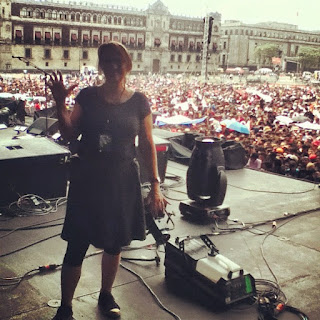I'm not a big fan of second-person point of view, but it seemed right to this homage to my biggest fan
The Writer In The Kitchen
1. You come home to find the crockpot bubbling away on the spotless counter and believe this to be a good sign. The writer is deep in her work, words are flowing as freely as the champagne you plan to open when this book that has consumed your lives appears atop the bestseller list. Although you have been warned that this is an unlikely outcome, you prefer this ending to the story.
When you locate the writer in the disarray of the spare bedroom she calls an office, she thanks you for your enthusiasm, but regrets the misunderstanding. That crockpot holds today’s sorrows: the rejections, the bad decisions, the harsh judgments. It is her last gasp of effort at the end of the day, a final attempt at creating something worthy. You will lift the crockpot’s lid, even though you have been warned never to do so, and interrupt the cooking process. You do not understand process. Just one peek. What’s the harm? You open and you sniff, reassuring the writer that it will be good.
You will then call for take-out because everything is now ruined.
2. The smell of garlic lures you into the kitchen. The writer is at the stove, wineglass in hand, cheerily sautéing in accordance with directions from a recipe torn from the pages of a magazine she found in the doctor’s waiting room.
It smells wonderful. You ask what it is. The writer gropes for the name of the recipe, but that information was on another page . One she didn’t rip out because she was sure she’d remember. It doesn’t matter to you, but the writer is stuck. She can not proceed until she finds the exact words she is looking for. Chicken something. Piccata? No. It starts with a P. Puttanesca? The writer begins telling a story about the recipe and the doctors office and soon, the garlic has burned. You suggest an alternative meal, but the writer can not give up her vision.
This will lead to an argument. You are no longer hungry.
3. This is what you are having for dinner: Moroccan meatballs in raisin sauce served with a side of Israeli couscous and a dry Italian red. The writer posted a photograph on Facebook two hours ago. It looks delicious. It also looks like it will be very cold by the time you arrive to eat.
Those intervening hours give you time to consider the whys of this situation. It is possible the writer has finished her work and is happy with the results. It is also possible that the writer has chosen an alternative career in food service and you are Patient Zero.
It will be neither. Angst has driven the writer to social media to increase her visibility. She has also started a blog, which she asks you not to read. But later that night, after the writer finishes most of the wine and retires, you do look and find you have become her main character. It is not a flattering portrait, but you are secretly proud because the writing is good.
4. You make plans for dinner out. The writer is grateful. She has not left the house in four days. On the ride to the restaurant she tells you about her progress and then says this: Thank you for your support. It is the best bit of dialogue she’s ever written.






